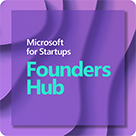Growing up in smalltown Ohio, Hakeem James understood early on, that the small mom-and-pop shops and restaurants that he grew up with, were what made his community special. In his words, “it wasn’t the global fast-food chain where you celebrated your little league win, it was the locally-owned pizza place that made it special.”
Cut to his adult life, where Hakeem served as VP of Product for one of the largest couponing companies in the world. Here he worked with global Fortune 100 retailers and saw firsthand how powerful data and data science can be in understanding and better serving customers. He also saw that the benefits of this data revolution were consolidating with the big players leaving smaller businesses with razor thin margins behind.
We recently sat down with Hakeem to understand what inspired him to jettison a stable career and the security of a regular salary to found CustomerX.i
By all accounts you had a secure career, what made you take the leap and found your own company?
Blockers and legacy systems are just inherent working in a large corporate structure, right? While well-intentioned and necessary, these things often tie you up and weigh you down. There is a whole sense of freedom that comes with being a startup. The notion of having a great idea and validating it without having to go through management and legal hurdles – avoiding the things that typically slow down innovation.
Can you talk about how you came up with your idea?
In my previous role, I saw how these large companies were able to take data, turn them into insights and build better mouse traps that influence consumer behavior. We saw that these insights were what was helping these big brands grow bigger at the expense of the little guys. The smaller players simply didn’t have the infrastructure, scale or frankly margins to compete. We saw a tremendous opportunity to democratize customer data and make it accessible and actionable for companies of all sizes. This is the itch that we needed to scratch – which led to CustomerX.i.
Can you talk about the ideation process?
A lot of the assumptions we had about our solution were based on our experience working with large corporations with massive teams dedicated to making sense of the data. It was very hands on with frequent check-ins. Early on, we talked to as many small businesses as possible and quickly realized that our original assumptions didn’t apply. It was very humbling but we learned a lot.
What did you learn exactly?
We learned how to listen to our customers and understand their pain points. For example, the people who run restaurants have historically been ignored by technology solutions. The owner of a small restaurant wears multiple hats – they run the business side, they are head of marketing, they oversee the kitchen and greet guests. These people are stretched massively thin. We had to take that to heart in building the product.
Where did that lead you?
It led us to simplicity. The question we often ask internally: “is it simple enough for my grandmother to use?” For the record, my grandmother sometimes picks up the phone upside down. For us to help these small businesses, we had to make a product that is dead simple to use.
Can you give an example of how the CustomerX.I solution works?
Sure. First let’s take a step back. How to businesses recognize their customers today? In most cases that is through a loyalty system, right? But chances are most people haven’t downloaded your app. On average, small businesses recognize less than 10% of the total customers that walk through their door. We are able to bring that number closer to 85%.
So if you’re a restaurant and you want to launch a new matcha drink, we can tell you who are the people that bought green drinks from you in the past and what time of day do they typically purchase their caffeinated beverages.
What advice do you have for other early-stage founders?
Throw out your assumptions and listen to your customers. It seems obvious to say but you need to really internalize that the customer is the lifeblood of your business.
What has your experience been like working with Microsoft?
Microsoft has been really great because they have put us in touch with teams on the technology side. A great example was the Microsoft Dynamics team who have a ton of experience working with large point-sale-systems- their guidance was invaluable. There are some insightful things we learned from a product usage side that we simply wouldn’t have known without speaking to those teams. The Microsoft for Startups tech enablement benefits including access to Azure was particularly helpful when we started out as it allowed us to focus on refining our solution on a stable and compliant platform.
It’s still early days but what are you most proud of right now?
One of our first customers was a single coffee shop in Austin who we started working with literally days before the pandemic started. They reached out to us recently and shared that they would have gone out of business without our help. That is something I’m really proud of.















